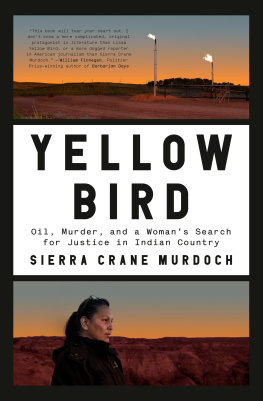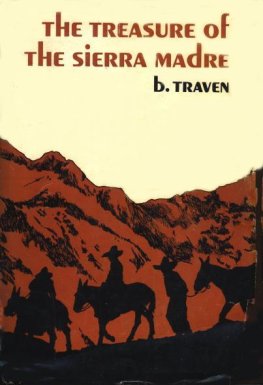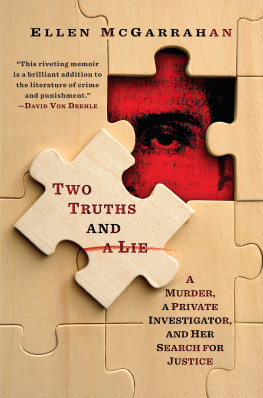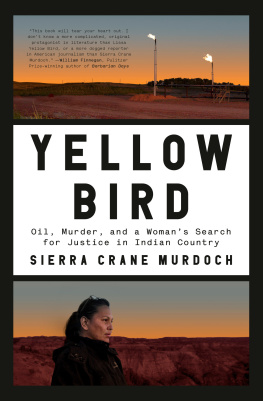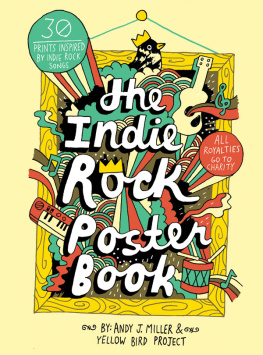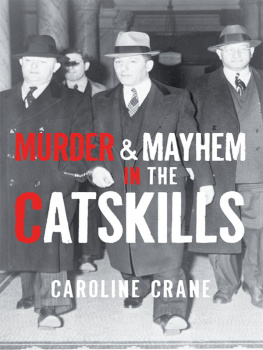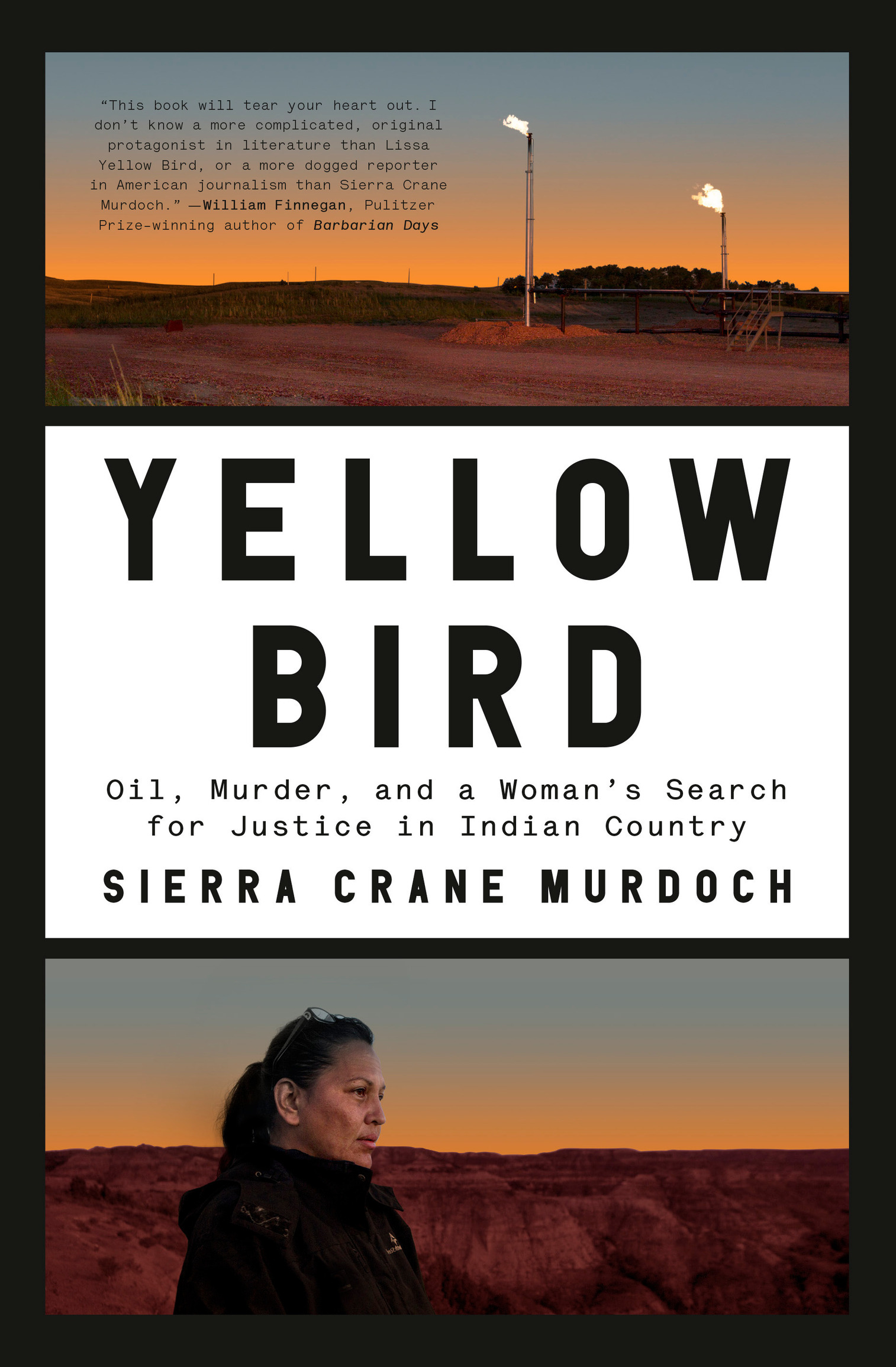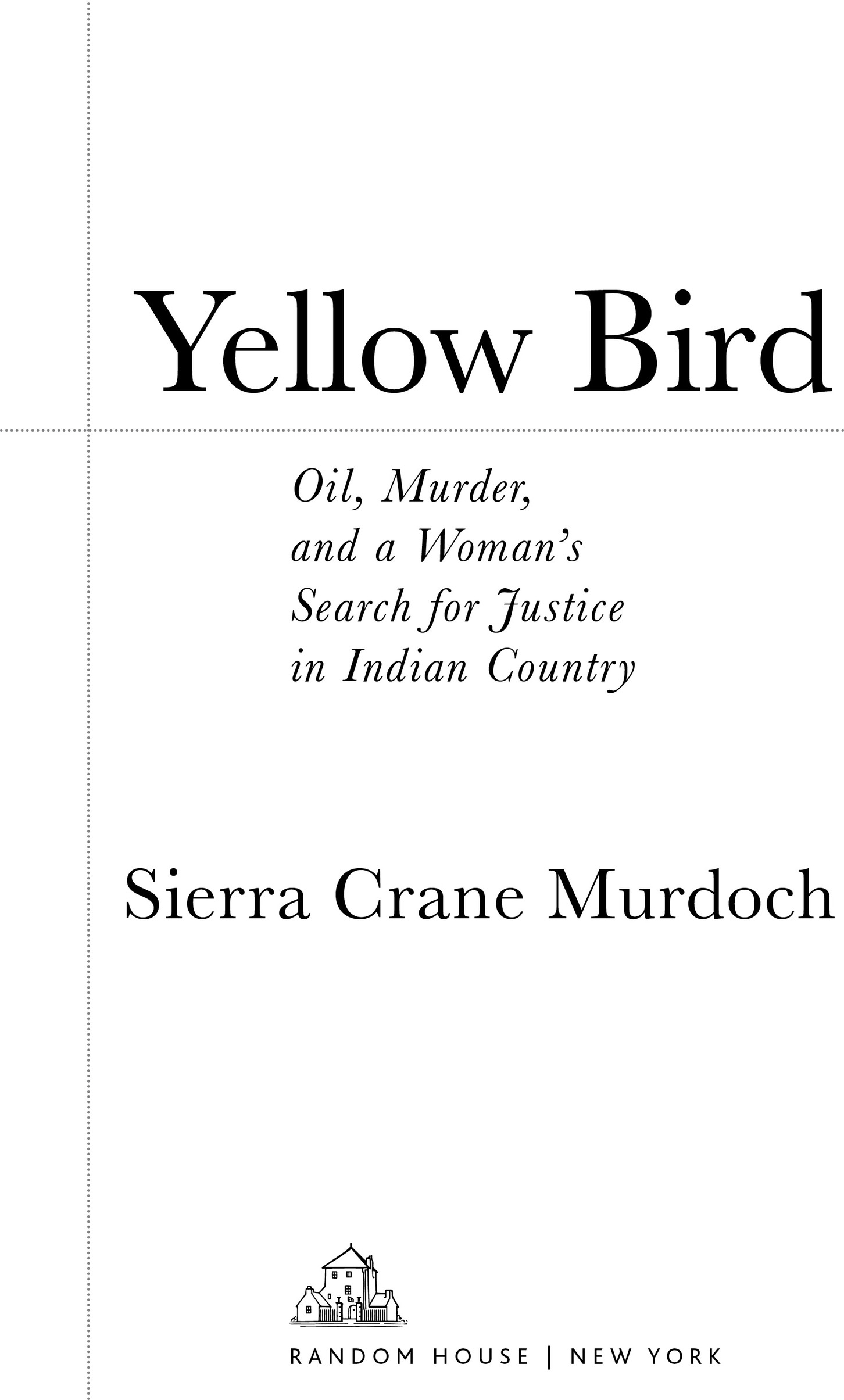Contents
Landmarks
Print Page List
Copyright 2020 by Sierra Crane Murdoch
All rights reserved.
Published in the United States by Random House, an imprint and division of Penguin Random House LLC, New York.
R ANDOM H OUSE and the H OUSE colophon are registered trademarks of Penguin Random House LLC.
Portions of this work were originally published in different form in High Country News and in the electronic versions of The Atlantic (theatlantic.com) and The New Yorker (newyorker.com). Photograph on by Kalen Goodluck used by permisison of Kalen Goodluck.
LIBRARY OF CONGRESS CATALOGING-IN-PUBLICATION DATA
Names: Murdoch, Sierra Crane, author.
Title: Yellow Bird: oil, murder, and a womans search for justice in Indian country / by Sierra Crane Murdoch.
Description: First edition. | New York: Random House, [2020]
Identifiers: LCCN 2019022833 (print) | LCCN 2019022834 (ebook) | ISBN 9780399589157 (hardcover) | ISBN 9780399589164 (ebook)
Subjects: LCSH: Yellow Bird, Lissa. | Clarke, Kristopher. | Missing personsInvestigationNorth DakotaFort Berthold Indian Reservation. | Criminal investigationUnited StatesCitizen participation. | Oil industry workersNorth DakotaFort Berthold Indian Reservation. | Three Affiliated Tribes of the Fort Berthold Reservation, North Dakota. | Fort Berthold Indian Reservation (N.D.)Social conditions.
Classification: LCC HV6762.U5 M78 2020 (print) | LCC HV6762.U5 (ebook) |DDC 364.152/3092dc23
LC record available at https://lccn.loc.gov/2019022833
LC ebook record available at https://lccn.loc.gov/2019022834
Ebook ISBN9780399589164
randomhousebooks.com
Book design by Susan Turner, adapted for ebook
Cover design: Anna Kochman
Cover photographs: Kristin Barker
v5.4
ep
Every day they had to look at the land, from horizon to horizon, and every day the loss was with them; it was the dead unburied, and the mourning of the lost going on forever.
L ESLIE M ARMON S ILKO
Lets say he knows we need someone
to admire, and says a hero is a person
who blunders into an open cave,
and that it takes courage to blunder.
S TEPHEN D UNN
Contents
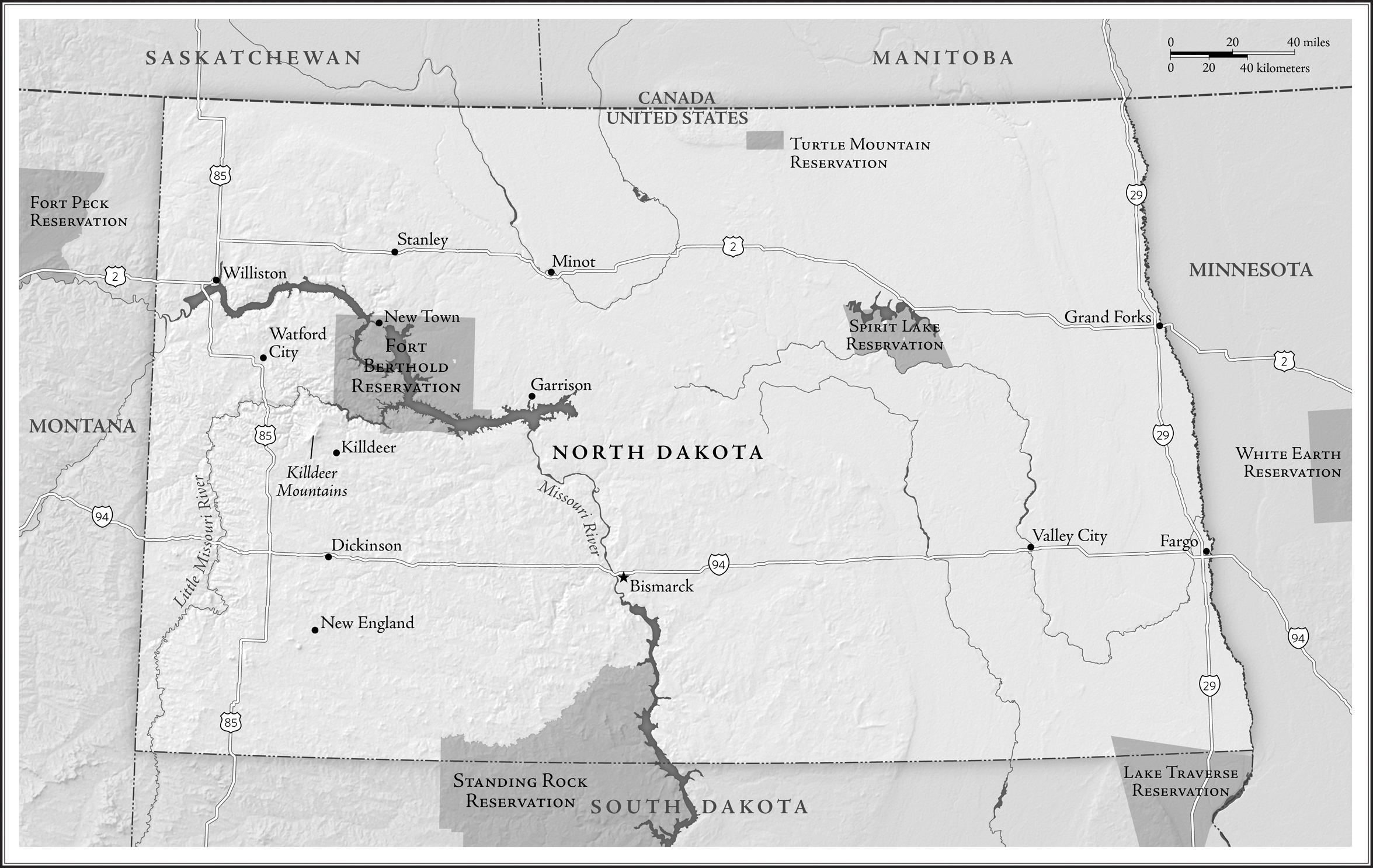
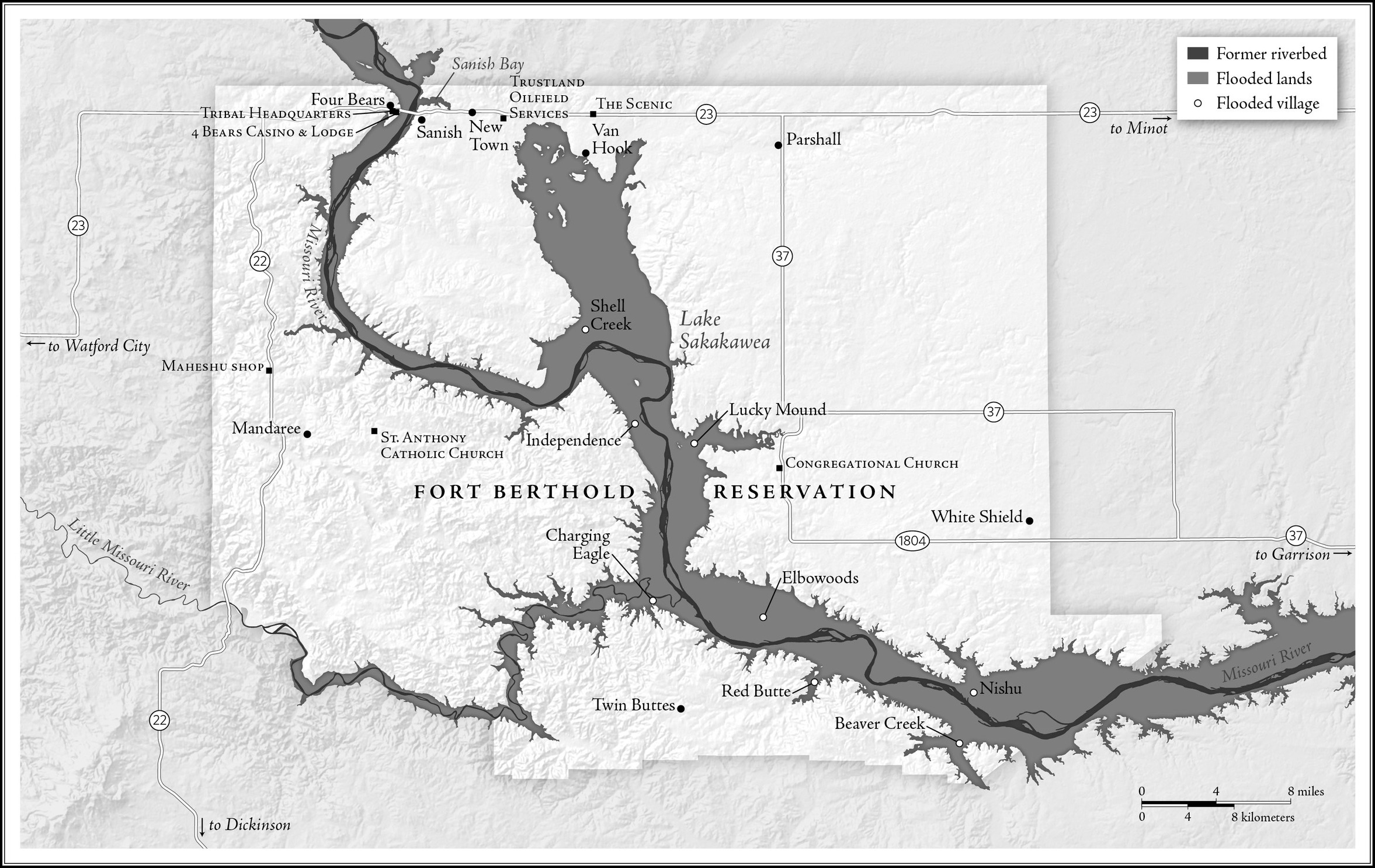
Prologue
Fort Berthold Indian Reservation, North Dakota
A MAN ONCE TOLD ME a story of how he dug up the bones of his relatives and held them in his hands. He is an old man now; then, he was young. He said he took the job because there were no others on the reservation and because the work was easier if a man did not think too hard about whose bones he was handling.
The reburials began in the summertime, in 1952, after the ground had thawed and the grass hung heavy with wood ticks. There were sixteen men, he said, two of them Native, and a foreman from Louisiana. The foreman did not seem to care, or perhaps he did not notice, when some of the men were careless with the bones and posed with them in various positions. The young man cared but did not say anything. He went on with his work. He placed the fragments in pine boxes, nailed the boxes shut, marked them with the names to which the bones apparently belonged.
The work lasted two summers, but the young man stayed just one and then enlisted in the Marines. His father, who had died the year before, was among the first laid in the new churchyard on the grasslands that rose from the Missouri River to the east edge of the reservation. The other families had left their villages by this time. In winter, when the river froze, the Army Corps of Engineers lifted houses onto pallets and pulled them over the ice. There would not be time to move all of the houses; nor would there be time to dig every grave. People would tell stories of heading for the bluffs, turning now and then to watch the water rise, though it did not happen quite like this. When the Garrison Dam was finished, the river came up slowly into the creases of the valleys palm, filling first the ditches and furrowed fields, and then climbing steps and spilling onto floors.
The churches were among the last structures to be moved, and it is said that the bells rang all the way to their new locations. Sunday services continued for a time, though they were poorly attended after the flood claimed the only roads on the reservation crossing the river, and after the people scattered on higher ground. One day, the young man returned to find his church emptied and the concrete grave markers grown over like stumps. People came now and then to carve their names in the church walls or to lay cigarettes and flowers on the graves of their relatives, but only at funerals did the living outnumber the dead. It would not take long for the prairie to claim the church, for wind to unhook the battens and shatter windows, and for rodents to make homes in the floors and walls. This became the nature of the reservation. A person could come home and find things taken or worn out. It was something you got used to, the inevitability of loss. The lake that rose in the rivers place was a shrine to this loss, to the things that had been and could be lost. Things pried from their foundations. Swept away with wood and bones. Pressed against the dam. Buried in the silt.
1
The Brightest Yellow Bird
L ISSA Y ELLOW B IRD CANNOT EXPLAIN why she went looking for Kristopher Clarke. The first time I asked her the question, she paused as if I had caught her by surprise, and then she said, I guess I never really thought about it before. For someone so insatiably curious about the world, she is remarkably uncurious about herself. She is less interested in why she has done something than in the fact of having done it. Once, she asked me in reply if the answer even mattered. People tended to wonder all kinds of things about her: Why did she have five children with five different men? Why had she become an addict and then a drug dealer when she was capable of anything else?
Lissa stands five feet and four inches tall, moonfaced and strong-shouldered, a belly protruding over hard, slender legs. Her teeth are white and perfectly straight. Her hair is lush and dark. She has a long nose, full lips, and brows that arch like crescents above her eyes. When I met Lissa, she was forty-six years old and looked about her agethough, given the manner in which she lives, one might expect her to look older. She has a habit of going days without sleep, of sleeping upright in chairs. She rarely cooks, subsisting largely on avocados, tuna, croissants, mangoes, and candied nuts, and smokes like a fish takes water into its gills. She often loses things, particularly her lighters. One night, I watched as Lissa searched for one, nearly gutting her kitchen, until she gave up, bent over the countertop, and lit her cigarette with the toaster.
She is a member of the Mandan, Hidatsa, and Arikara Nation, an assembly of Three Affiliated Tribes who once farmed the bottomlands of the Missouri River and now call a patch of upland prairie in western North Dakota their home. The Fort Berthold Indian Reservation is three times the area of Los Angeles. The tribe has more than sixteen thousand members. Like a majority of these members, Lissa has not lived on Fort Berthold in some time, but she keeps in her possession an official document establishing her tribal citizenship:

